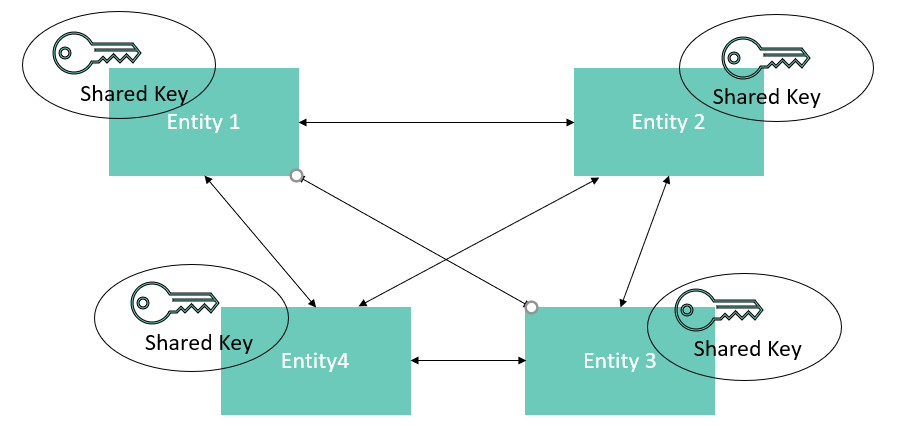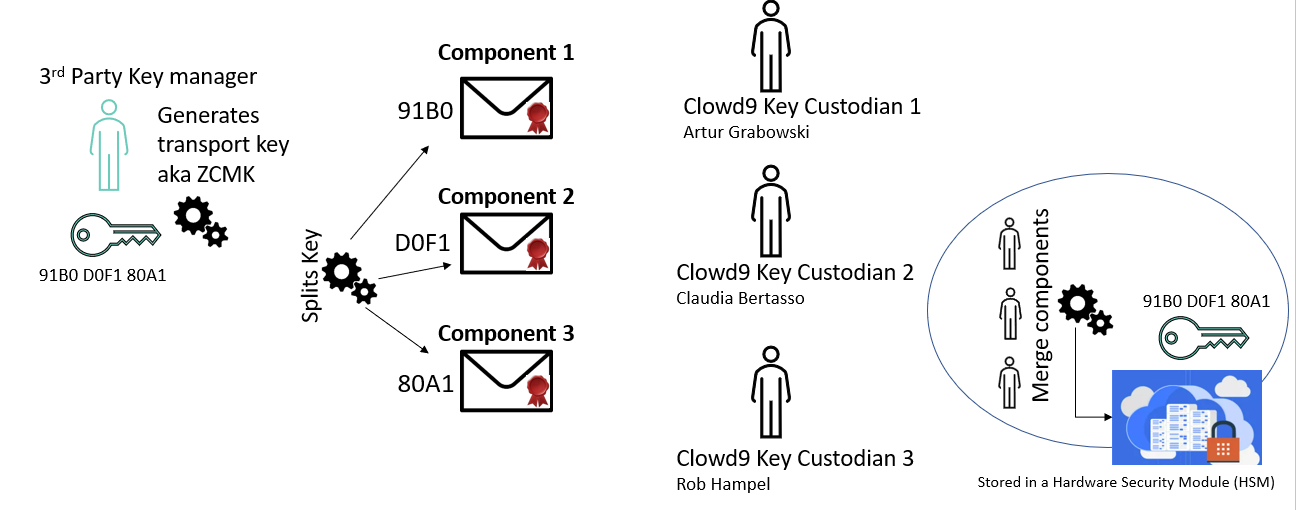Shared Key - Symmetric
Symmetric keys are where the same key used to encrypt and decrypt the data (or compute verification values)
Both correspondents share the same key to encrypt/decrypt
If the key is compromised, then a new key needs to be created and exchanged

All parties that have the key can decrypt the messages (or compute values)
Shared key must be transmitted securely not to compromise security
Best only shared between a limited number of entities (two)

Shared keys are smaller for the same level of security
Algorithms using shared keys are simpler and faster
How to exchange a shared key?
-
Encrypt the shared key with another key:
a) With the recipient’s public key b) Or with a previously shared key -
Or use a secure transmission protocol:
If no previously shared key is available, split the key in several pieces which are sent to different people who will need to reassemble the key
Typical protocol with a new Third Party :
Step 1. A first key, called Transport key (ZCMK) is shared using a secure transmission protocol.

KCV - Key Check Value
KCV = 6 hex digits (0-F) used to check that a Key hasn’t been altered
Zeroes are encrypted using the key to get the KCV
The 6 first digits of the result must be identical to the Verification Value
Updated 9 months ago